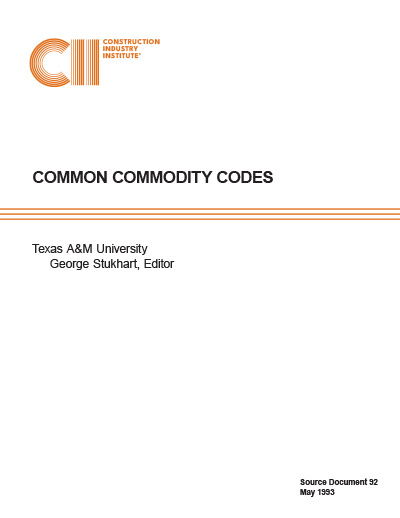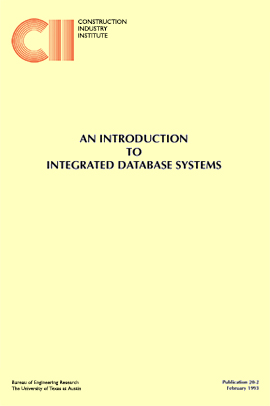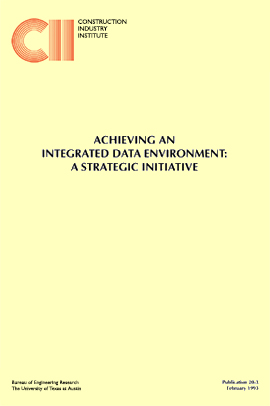
EDI: Concepts and Applications
The construction industry has a need to electronically transmit standard documents between designers, owners, contractors, and material suppliers. These documents include purchase orders, requests for quotations, invoices, shipping notifications, material lists, and payment transfers. Electronic data interchange (EDI) is a technology that permits the transfer of these documents, and others, from one computer application to another. EDI differs from electronic mail in that the documents are transmitted in an industry standard format, checked for errors, and imported directly into the receiving computer application without rekeying.
EDI technology is generally credited with reducing paperwork and data transmission costs, improving data accuracy, reducing material inventories, and enhancing the planning of activities that depend on accurate, timely material shipping notifications. EDI can, therefore, play a significant role in achieving U.S. construction industry goals related to reducing project costs and improving project schedules.
National and international data exchange standards have been developed to facilitate EDI document exchange in other industries. Although these standards can be utilized by the construction industry, the industry itself must play a more active role in data standards development and approval. The CII Electronic Data Management Task Force has been instrucmental in CII’s establishment of the Construction Industry Action Group (CIAG). The purpose of CIAG is to promote EDI in the construction industry and to represent the industry in various national and international data standards organizations.
EDI technology is generally credited with reducing paperwork and data transmission costs, improving data accuracy, reducing material inventories, and enhancing the planning of activities that depend on accurate, timely material shipping notifications. EDI can, therefore, play a significant role in achieving U.S. construction industry goals related to reducing project costs and improving project schedules.
EDI is a technology that permits direct computer-to-computer exchange of data in a standard format. EDI while common in some industries is not common in the EPC business.
EDI while common in some industries is not common in the EPC business.
The research provides an overview of EDI concepts and terminology and reports on the costs and benefits associated with the implementation efforts of two CII member companies. Recommendations for pilot project implementation and industry actions are also presented.
Some benefits can be derived from simple PC to PC based systems; however, maximum benefits are only possible when integrated by each participating entity into their existing systems. Also, a higher volume of transactions equates directly to higher cost savings. (RS20-1, p. 12)



